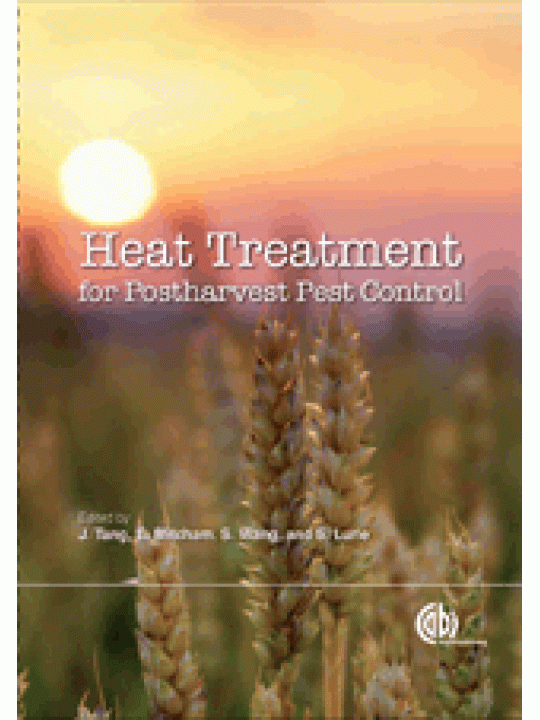Heat Treatments for Postharvest Pest Control Theory and Practice
Edited by J Tang; E Mitcham; S Wang; S Lurie
Pub Date: July 2007
Hardback
350 pages
Main Description
Due to the nature of agricultural commodities as carriers of exotic pests, importing countries have employed varying methods of pest control for postharvest products. Thermal treatments are emerging as effective, environmentally-friendly alternatives to traditional methods, eliminating chemical residues and minimizing damage to produce. This book provides comprehensive information of these increasingly important treatments, covering temperature measurement, heat transfer, physiological responses of plants, insects and pathogens to heat, and an introduction to current and potential quarantine treatments based on hot air, hot water, and radio frequency energy.
Main Contents
• Introduction: History and purpose of quarantine and phytosanitation requirements, J D Hansen, USDA-ARS, USA; J A Johnson, USDA-ARS, USA
• Chapter 2: Fundamental heat transfer theory for thermal treatments, J Tang and S Wang
• Chapter 3: Temperature measurement, J Tang and S Wang
• Chapter 4: Physiological responses of agricultural commodities to heat treatments, S Lurie and E J Mitcham
• Chapter 5: Experimental and simulation methods of insect thermal death kinetic, S Wang, J Tang and J D Hanson
• Chapter 6: Physiology and thermal death kinetics of selected insects, J Tang, S Wang and J A Johnson
• Chapter 7: Thermal control of fungi to reduce postharvest decay, E Fallik, ARO, The Volcani Center, Israel, and S Lurie
• Chapter 8: Disinfestation of stored products and associated structures using heat, S J Beckett, CSIRO Entomology, Australia, P G Fields, Agriculture & Agrifood Canada, and Bh Subramanyam, Kansas State University, USA
• Chapter 9: Considerations for phytosanitary heat treatment research, G J Hallman, USDA-ARS, USA
• Chapter 10: Heat with controlled atmospheres, E J Mitcham
• Chapter 11: The influence of heat shock proteins in insect pests and fruits in thermal treatments, S Lurie and E Jang, US Department of Agriculture
• Chapter 12: Thermal treatment protocol development and scale-up, J Tang, S Wang, and J W Armstrong, USDA-ARS, USA
• Chapter 13: Commercial Quarantine Heat Treatments, J W Armstrong and R L Mangan, USDA-ARS, USA
Readership
An invaluable resource for students and researchers in horticulture, entomology, food science and agricultural engineering, and to government officials regulating domestic and international trade.

